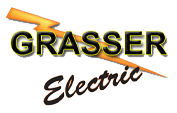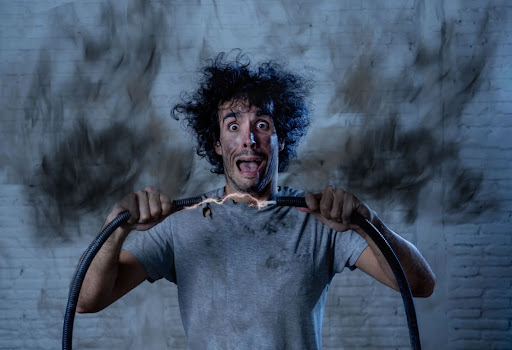Are you considering tackling electrical work in your home? DIY electrical projects can be risky and potentially dangerous. The hazards of amateur electrical work include fire risks, legal issues, and a ton of stuff you just don’t want to deal with.
Safer alternatives can help you spot signs of faulty wiring, and by understanding these risks, you can make informed decisions to keep your home and family safe.
The Nature of DIY Electrical Work Risks
Before you tackle DIY electrical work, you have to assess your skills and understand common mistakes. From lighting installations to outlet repairs, incorrect DIY work can lead to serious dangers. Knowing when to hire a professional for electrical repairs is key. Even a simple task like tightening a screw can pose risks if done improperly.
Assessing Your Skills and Experience Level
Before you start any electrical work, take a moment to honestly evaluate your skills and experience. If you’re unsure about local jurisdiction regulations or how to properly ground electrical components, it’s best to call a licensed electrician. Your safety and the integrity of your home’s electrical system are more important.
Remember, a failure to assess your abilities accurately can lead to serious consequences. Improper DIY electrical work may void your home insurance policy, leaving you financially vulnerable in case of accidents. If you’re not confident in your skills, seeking professional help is always safer.
Common Mistakes Made in DIY Projects
When tackling DIY electrical projects, you might overlook important safety measures, leading to serious consequences. For instance, improper wiring of a light switch can cause a short circuit, potentially starting a fire or even triggering a flood if it’s near water sources. Remember, mistakes in commercial settings can be particularly dangerous, risking regulatory compliance issues and hefty fines.
Another common error is underestimating the importance of proper grounding, which can result in electric shock or cardiac arrest. You might also forget to turn off the main power supply before starting work, putting yourself at risk of electrocution. Always prioritize safety and consult a professional if you’re not sure about any aspect of electrical work.
Identifying the Dangers of Incorrect Installations
Incorrect electrical installations can lead to severe consequences, including injury and power outages. The National Fire Protection Association reports that faulty wiring is a leading cause of residential fires. You risk damaging your property and putting lives at risk when you attempt complex electrical work without proper knowledge.
Experts warn that DIY electrical projects often result in hidden dangers that may not be immediately apparent. These can include overloaded circuits, improper grounding, or incorrect wire connections.
Over time, these issues can escalate, potentially causing electrical shocks, equipment failure, or even structure fires. For safety and compliance, you must recognize when a job requires professional expertise. Follow these tips:
- Assess the complexity of the task.
- Check local codes and permit requirements.
- Evaluate your tools and knowledge.
- Consider the potential risks.
- Know when to call an expert.
The Potential Consequences of Bad DIY Electrical Work
When you attempt DIY electrical work, you risk serious consequences. Poor wiring can lead to fire hazards, while faulty systems increase the risk of electrocution. Substandard work may cause long-term structural damage, affecting your building’s integrity. Understanding these risks is crucial, especially when considering insurance claims.
Risks of Fire Hazards Due to Poor Wiring
Poor wiring poses significant fire hazards in your home or commercial property. When you attempt DIY electrical work without proper knowledge, you risk creating dangerous conditions. Overloaded circuits, loose connections, and improper wire gauge selection can lead to overheating, sparks, and, ultimately, fires.
To ensure fire safety, consider hiring an electrical contractor for complex tasks. They have the expertise to handle high-voltage systems and provide safe access to electrical panels. Remember, even a small mistake in wiring can result in devastating consequences like the following:
- Overheated wires causing insulation breakdown
- Faulty connections leading to arcing
- Improper grounding increasing shock and fire risks
- Overloaded circuits triggering electrical fires
- Incorrect wire sizing causing voltage drops and overheating
How Faulty Electrical Systems Can Lead to Electrocution
When you work on home improvement projects involving electronics, faulty electrical systems can put you at risk of electrocution. Improper wiring or installation of a ceiling fan, for example, can expose live wires, creating a dangerous situation. If you notice smoke or unusual odors from your electrical fixtures, it’s a sign of potential hazards that require immediate attention.
Long-Term Structural Damage From Substandard Electrical Work
Substandard electrical work can cause long-term structural damage to your property. When electrical services are improperly installed, it can lead to overheating, which may weaken walls, ceilings, and support beams over time. This is especially concerning for air conditioning systems, which require significant electrical power and proper installation to function safely and efficiently.
Faulty wiring can also impact your property’s data infrastructure. Incorrect installation may cause power surges that damage electronic devices or create fire hazards. To protect your property and ensure safety, rely on professional electrical services for complex tasks:
Electrical Work | Potential Structural Damage | Safety Concern |
| Improper wiring | Wall/ceiling weakening | Fire hazard |
| Overloaded circuits | Insulation breakdown | Overheating |
| Faulty HVAC installation | Support beam stress | System failure |
Legal and Financial Implications of DIY Electric Dangers
When you tackle DIY electrical work, you’re not just risking your safety — you’re also facing potential legal and financial consequences. Understanding building codes, impacts on your insurance policy, and the high costs of repairs gone wrong is crucial. From faulty outlets to heat-related issues, these problems can affect your home’s internet and more. Let’s explore why getting a free estimate from a professional might save you money in the long run.
Building Codes and Regulations
When you tackle do-it-yourself electric projects, you must understand and follow building codes and regulations. These rules aren’t just red tape; they’re designed to protect you from potential damages and emergencies. Failing to comply can result in fines, forced repairs, or even legal action.
Your local building department sets specific requirements for electrical work, including proper fuse ratings and wiring methods. Before starting any project, check these regulations to ensure your work meets safety standards. Remember, ignorance of the law isn’t an excuse, and violations can lead to serious consequences:
- Hefty fines for non-compliance
- Mandatory re-inspection fees
- Potential home sale issues
- Increased liability in case of accidents
- Voided insurance coverage
Alternatives to DIY Electrical Work? Hiring Licensed Electricians
When it comes to electrical work, safety should be your priority. Consider alternatives to DIY that can protect you and your property from hazards. Hiring licensed electricians offers benefits in expertise and compliance with construction codes. Expert solutions provide peace of mind, ensuring your power systems are installed and maintained correctly.
Our company, Grasser Electric, is proud to serve you. With a wide-reaching service area in St. Charles County that includes the Greater St. Louis Area, we are proud to provide careful, professional electrical services. Call today for electrical upgrades, interior and exterior lighting services, and more.

